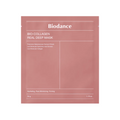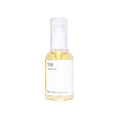Ingredient Spotlight: Peptides 101

Have you heard the new buzz about peptides? They’re the hero ingredient in treating wrinkles and other anti-aging skin matters. Peptides do wonders for your skin, but have you wondered what peptides are and what they do for your skin? Is it worth having this ingredient in your skincare regimen? Most dermatologists would say yes!
Peptides: The Basics
Peptides are threads of amino acids. These are building blocks for making proteins in the body. Collagen is an example of a peptide that adds firmness to the skin. Without the presence of such proteins, dry hair, brittle nails, and wrinkles would persist. Peptides are also the building blocks for elastin fibers, a key ingredient in adding elasticity and tissue firmness.
Apart from being a vital ingredient in the skin’s function and structure (that is, firmness, overall appearance, and texture), peptides can also be found in human cells. Here they act like biological messengers. The human body is dependent upon peptides. When we’re deficient in them, the body cannot operate. Peptides have numerous uses in the body. Apart from aiding mature skin, they’re also necessary to manufacture hormones and are used as energy sources.
Peptides: How They Work in Skincare
If peptides exist in the body, why do we require them in skincare products? The reality is we lose up to 1% of collagen each year after the age of 30. Our skin’s communication and healing channels also begin to halt with time.
However, painting your skin with peptides won’t give more peptides. This is because peptides work in a complex manner. The human body regards peptides as signaling mechanisms for healing. It tells them to start producing more collagen in the place where it’s needed most. For instance, if you sustain an injury in the ankle, peptides will trigger the body to send repair efforts in that joint. In case the skin is experiencing premature aging, peptides signal your body to boost its collagen and hyaluronic acid production. Both will restore healthy skin and add plumpness to it. When topical peptides are applied to the skin as serum or moisturizer, the skin is tricked into assuming that a wound or injury has occurred. This stimulates collagen production.
Types of Peptides
In skincare, all peptides are not the same, nor do they work in the same manner. There are many peptides out there, some more efficacious than others. For instance, enzyme inhibitor peptides reduce the speed at which collagen is broken down. Carrier peptides deliver minerals to required areas where collagen production will occur. Signal peptides send signs to different areas of the skin to boost elastin and collagen production. Lastly, neurotransmitter peptides work like Botox. They block the discharge of muscle contractions responsible for expression lines.
When it comes to improving mature skin, fine lines, wrinkles, and firming, peptides are the best solution. To ensure you get the best skin enhancing treatment, ensure your topical skin care regimen has the right peptide formulation. Consultation with a dermatologist and or skin aesthetician will help you determine the best formulation for your skin.
Until the next one,
Stay Glowing











